The Mid-Autumn Festival is a time when the moon hangs high, glowing like a silver disk against the night sky. As we taste a sweet mooncake and gaze up at the bright moon, we’re reminded not only of the warmth of the season but also of our deep connection with nature. This is not just about an ancient tradition; it’s about safeguarding the natural world around us. In the moon’s serene light, we find the blessings of life.
``The Drunken Concubine`` (贵妃醉酒): A Peking Opera about Yang Guifei, a Tang Dynasty concubine. She becomes upset and drunk after Emperor Xuanzong fails to attend a promised banquet on Mid-Autumn Festival, expressing her sorrow through graceful dance and movement.
The Mid-Autumn Festival and the Tale of Chang’e
Long ago, ten suns appeared in the sky, burning the earth and hurting life below. In response, the legendary archer Hou Yi (后羿) took aim and shot down nine of the suns, restoring balance to the world. For his heroic deeds, the Queen Mother of the West (西王母) gifted him a potion of immortality, crafted by the Moon Rabbit (玉兔) itself. Rather than drink it alone, Hou Yi entrusted it to his beloved wife, Chang’e (嫦娥). However, Hou Yi’s apprentice, Peng Meng (蓬蒙), attempted to steal the elixir. In her panic, Chang’e swallowed the potion and floated up to the moon, where she now resides as the Moon Goddess.
Every year on the 15th day of the 8th lunar month, the day when Chang’e ascended to the moon, Hou Yi would offer fruits and cakes to the moon, longing for his wife. This act of love evolved into the Mid-Autumn Festival, a celebration of reunion, love, and the beauty of nature. The festival has since spread to other cultures in East Asia, inspiring similar traditions, such as “Chuseok” in Korea, “Tsukimi” in Japan, and “Tết Trung Thu” in Vietnam.
“Lady Chang’e Flying to the Moon” by Tang Yin (Ming Dynasty)
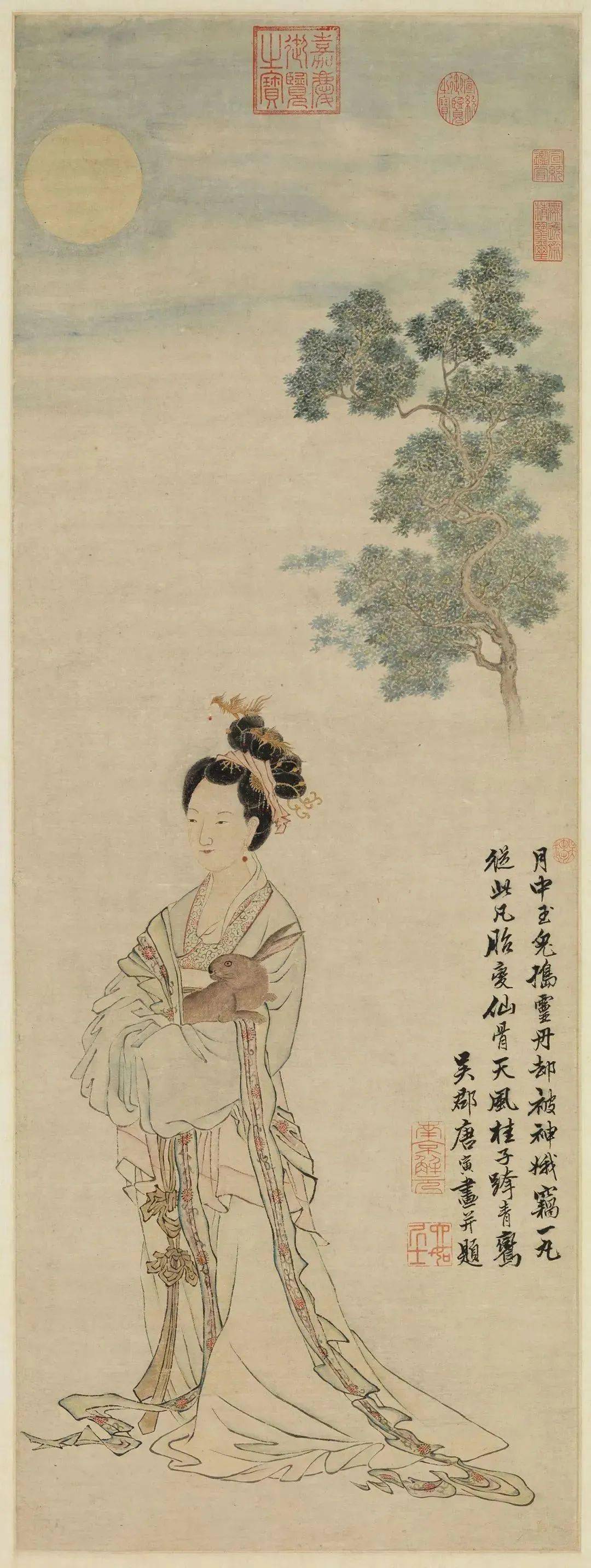
The mooncake, central to this celebration, comes in many flavours, each symbolising unity and warmth. One classic variety is the “Five-Kernel Mooncake”, made with a blend of walnuts, almonds, peanuts, sesame seeds, and melon seeds. The number five kernel (仁[rén]) holds significance, representing the unity of family members (家人[rén]): father, mother, husband, wife, and child. Taking a bite is akin to embracing the blessing of togetherness.

In Chinese culture, even the mooncake’s decorations carry profound meaning. The bat is a common pattern because its Chinese name, “fú” (蝠), is a homophone for “blessing” (福). This linguistic playfulness extends into art, where bats symbolise good fortune and happiness.
Bats are also found in royal artifacts, such as an exquisite porcelain vase from the Qing dynasty that depicts bats encircling peaches, signifying “blessings and longevity”. Even the marriage robes of an empress would feature red bats, wishing the couple boundless joy and prosperity.


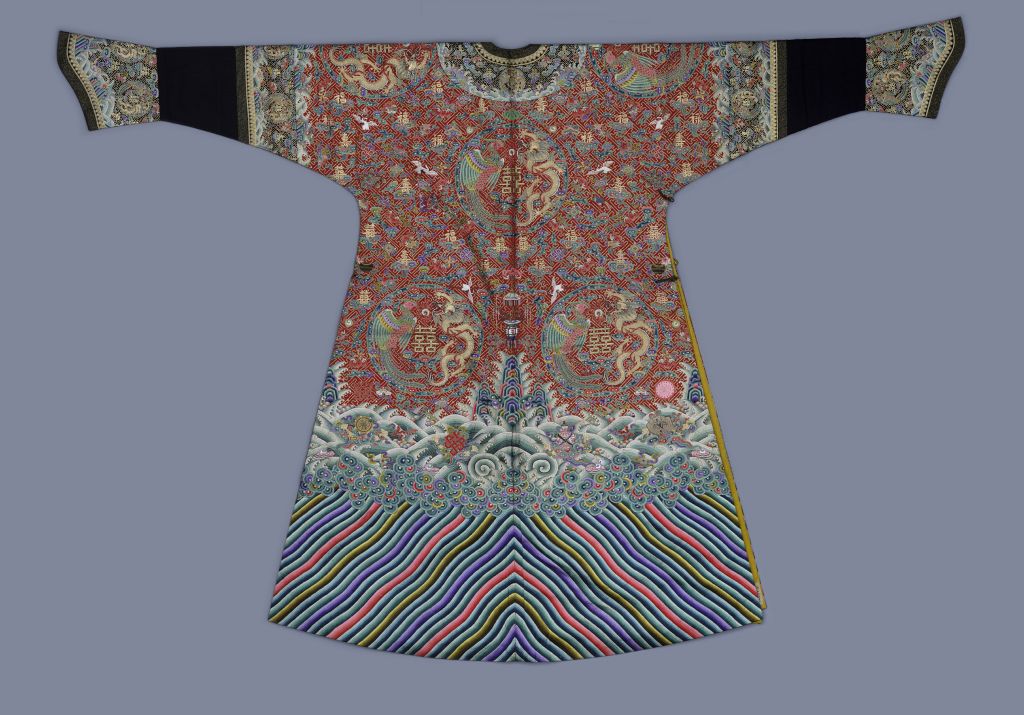
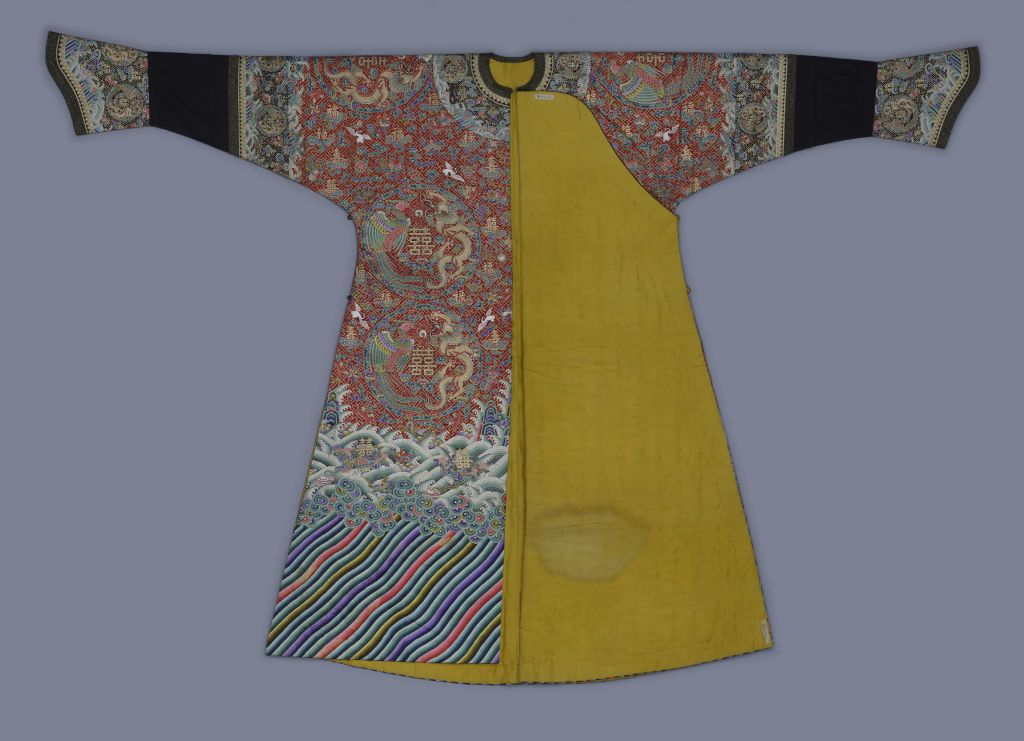
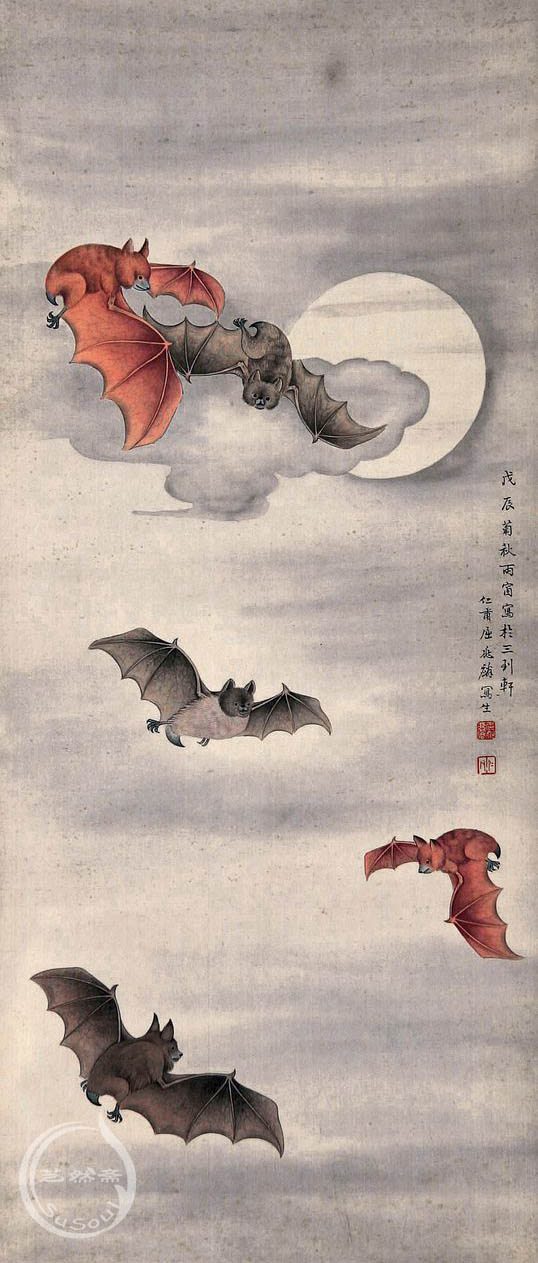
Protecting Our Own “Blessed” Creatures
Bats hold special importance not only in Chinese culture but also in the natural world. Here in New Zealand, we are home to two unique bat species: the long-tailed bat (Chalinolobus tuberculatus) and the lesser short-tailed bat (Mystacina tuberculata). However, these precious “bringers of blessings” face threats from human activity, habitat destruction, and invasive species.
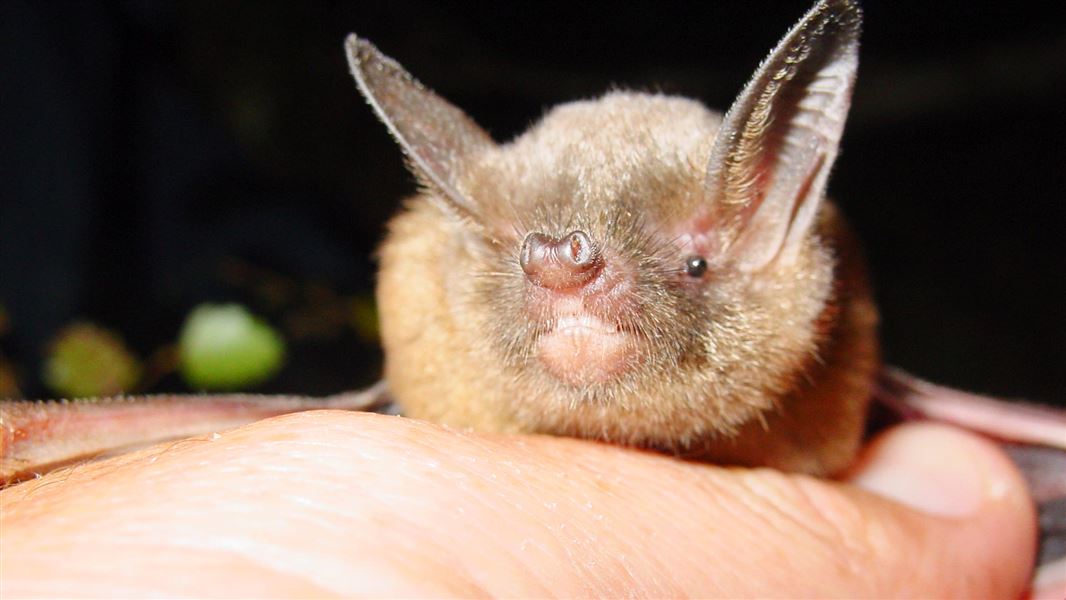
IMAGE: Colin O'Donnell
To create a haven for these native bats, as well as birds, fish, insects, and plants, we must work together to minimise the presence of invasive species. That’s why the Pest Free Howick Ward project offers free rat traps to every household, helping to control pests and protect local wildlife. From Flat Bush to Bucklands Beach, residents can participate by requesting a trap through this form: https://pfhw.org.nz/get-started/join-our-project/.
The Mid-Autumn Festival is about more than just looking at the moon; it’s about cherishing nature and its blessings. This concept can resonate far beyond Chinese culture. For example, many cultures celebrate harvest festivals and give thanks for nature’s bounty, whether it’s Thanksgiving in North America or Harvest Home in the United Kingdom.
Tonight, as we admire the full moon and share sweet treats, let’s also think of the bats and other creatures that thrive under its glow. Whether you’re enjoying a traditional mooncake, celebrating with friends, or simply gazing up at the stars, consider how you can contribute to protecting the natural world around you.
A small action, like setting up a trap to protect local wildlife, can go a long way. Together, we can make sure that blessings—both cultural and natural—continue to flourish under the moonlit sky.
By Mr Tuatara

© Copyright 2024 - PEST FREE HOWICK WARD
A Howick Local Board funded project
